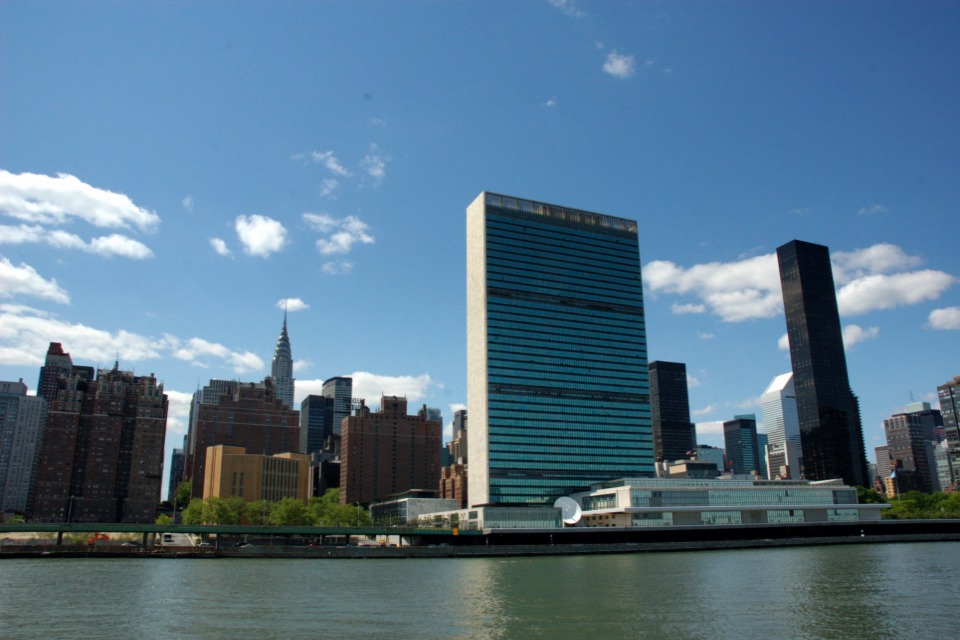The Council covered an extraordinarily wide range of the issues in October
Intervention by Ambassador Lyall Grant of the UK Mission to the UN, to the UN Security Council Wrap-Up Session for October

Thank you, Madam President, and your team, for your leadership and hard work during this month’s Presidency. I could wax lyrical about that like my Korean colleague, but that would not be very British. Can I thank you for convening today’s wrap up session. It is welcome once again that this session is being held in public and I hope that subsequent Presidencies will repeat this open and transparent format.
Madam President,
The Council covered an extraordinarily wide range of the issues in October. This included a number of continuing conflicts in Africa: Mali, Somalia, South Sudan, Abyei and the DRC. The Council also spent time on a number of issues in the Middle East, including yesterday’s emergency session in response to the escalating tensions and risks around the situation in Jerusalem. It discussed the Ebola crisis which is now recognised to be a threat to international peace and security. It discussed Ukraine where the separatists plan to hold so-called local elections this weekend in clear violation of the Ukrainian constitutionsand the Minskagreements. All Member States should vow not to recognise them. And it had meetings with the President of the International Court of justice and Peacekeeping Force Commanders.
Throughout the month you, Madam President, have stuck to the principle of openness and transparency: supporting the move of the Cote d’Ivoire sanctions briefing into the Chamber and even allowing Malian television to broadcast live their Foreign Minister’s statement to the Council at the beginning of the month.
You have also convened three very different open debates which have given a representative flavour of the nature and breadth of the issues before this Council.
The open debate on the Middle East represented the more traditional, geographically defined prism through which the Council engages on the maintenance of international peace and security. The open debate on Women, Peace and Security reflected how the Council has embedded a cross-cutting thematic approach to its work. The WPS agenda is now an integral part of the Council’s work and its understanding of the nature of conflict today – and how to resolve it. The open debate on working methods, the fifth consecutive debate on the topic, showed how more recently the Council has been prepared to open up its self-reflection to the wider membership.
This trajectory of openness, transparency and reflection is to be welcomed. It demonstrates a willingness of the Council to adapt how it considers matters of international peace and security and to remain open to hearing from a wider range of actors on all aspects of its work.
Madam President,
While we can see this trajectory through the way the Council has dealt with the issues before it in October, we can also see areas where the Council has been unable to make progress. The Council has discussed the situation in the DRC innumerable times since 1960 when the first UN Mission, ONUC, the United Nations Operation in the Congo was established. We have been considering questions about the Middle East since the 1950s. Even the relatively young issue of Western Sahara has been on the Council’s agenda for nearly 25 years.
But if we fail to resolve these old issues, we shall not have the time to deal with the crises and challenges that the world faces. That is why a renewed focus on conflict prevention must remain a central part of the Council’s effort to maintain international peace and security. If we can take early action to prevent situations deteriorating, we may be able to avoid situations becoming entrenched fixtures on the Council’s Programme of Work.
But to create the space and time to take a genuinely preventive approach, we need to find ways to avoid having repetitive discussions on entrenched issues. We need to move some items off the Council’s agenda faster than items are coming onto it. Some items on the formal agenda of the Security Council have not been discussed for 60 years and we should stop pretending that we are trying to resolve them.
Madam President,
This links directly to our methods of work. We require timely briefings from “early warning” actors across the United Nations. We need to develop more interactivity in informal consultations. And despite recent efforts, including yours in the month of October, these too often resemble a formulaic exchange of positions. And we need to ensure that we are as efficient as possible in the conduct of our business. Unless we can improve these simple aspects of our working methods, an enlarged Security Council will simply not be able to function.
Lastly, although it may be too soon to congratulate Ambassador Quinlan on Australia’s assumption of the Presidency, I can offer the United Kingdom’s full support for its presidency.
Thank you, Madam President.